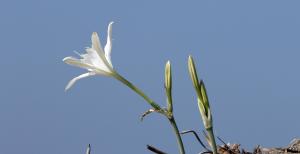
Grants
Bridging Seas and Societies: The Saros Bay Conservation and Restoration Planning
450,000 TRY awarded
Status: Closed
Project Duration: October 2024- November 2025
Challenge
Saros Bay and its surrounding areas face multiple environmental threats, including illegal fishing, water pollution, human impacts, invasive species, coastal infrastructure development, and the effects of climate change. Despite legal protection, these areas need more effective on-the-ground conservation efforts.
Solution
This project follows the “A Cultural Landscapes Based Assessment” project, which initially aimed at profiling the Aegean marine and coastal ecosystems, focusing on sustainable small-scale fisheries. The project identified Saros Bay SEPA as a priority area for conservation and restoration, emphasizing the need for immediate action based on comprehensive environmental, socio-economic, and spatial data.
Key Achievements
-
Comprehensive threat & stakeholder mapping across Saros Gulf’s marine and coastal ecosystems, including all local fishery cooperatives and relevant institutions.
-
Four field missions and dozens of interviews with fishers, researchers, authorities, and NGOs to understand biodiversity pressures and fishery challenges.
-
39-participant multi-stakeholder workshop leading to a jointly prioritised Conservation & Restoration Action Plan.
-
Strong national & international visibility, including recognition by the European Commission and participation in major global forums (UNOC, CBD COP16, EU Mission Forum).
-
Long-term collaborations established, including a formal partnership with ÇOMÜ and new regional/international alliances supporting Posidonia restoration, ghost gear removal, and community-led fisheries management.
This project supported the creation of the first Saros Gulf Conservation & Restoration Action Plan, a roadmap developed with small-scale fishers, local authorities, academics, and civil society. Through extensive fieldwork, stakeholder interviews, and ecological assessments, the team identified the region’s most urgent threats and co-designed practical actions to protect marine biodiversity and strengthen sustainable small-scale fisheries.
The project also elevated Saros Gulf internationally, receiving recognition from the European Commission’s Restore Our Ocean & Waters Mission and building long-term partnerships with universities, cooperatives, and Mediterranean networks.
About the organisation: Established in 2015, YOLDA focuses on biodiversity conservation and sustainable land and sea use through research, advocacy, communications, and collaborations. It follows the cultural landscapes and seascapes/socio-ecological production landscapes approaches, aiming for long-term, large-scale impacts like increased biodiversity, improved food security, and resilient local livelihoods.
